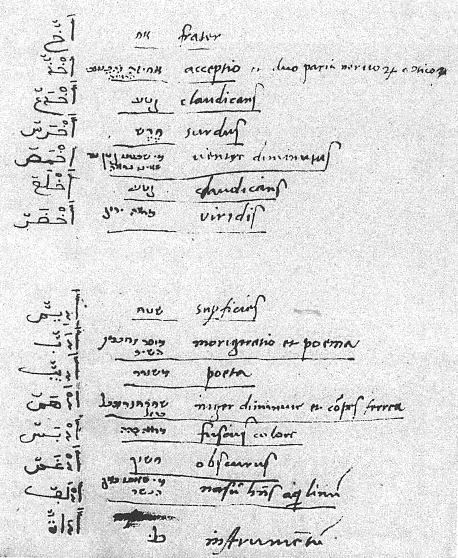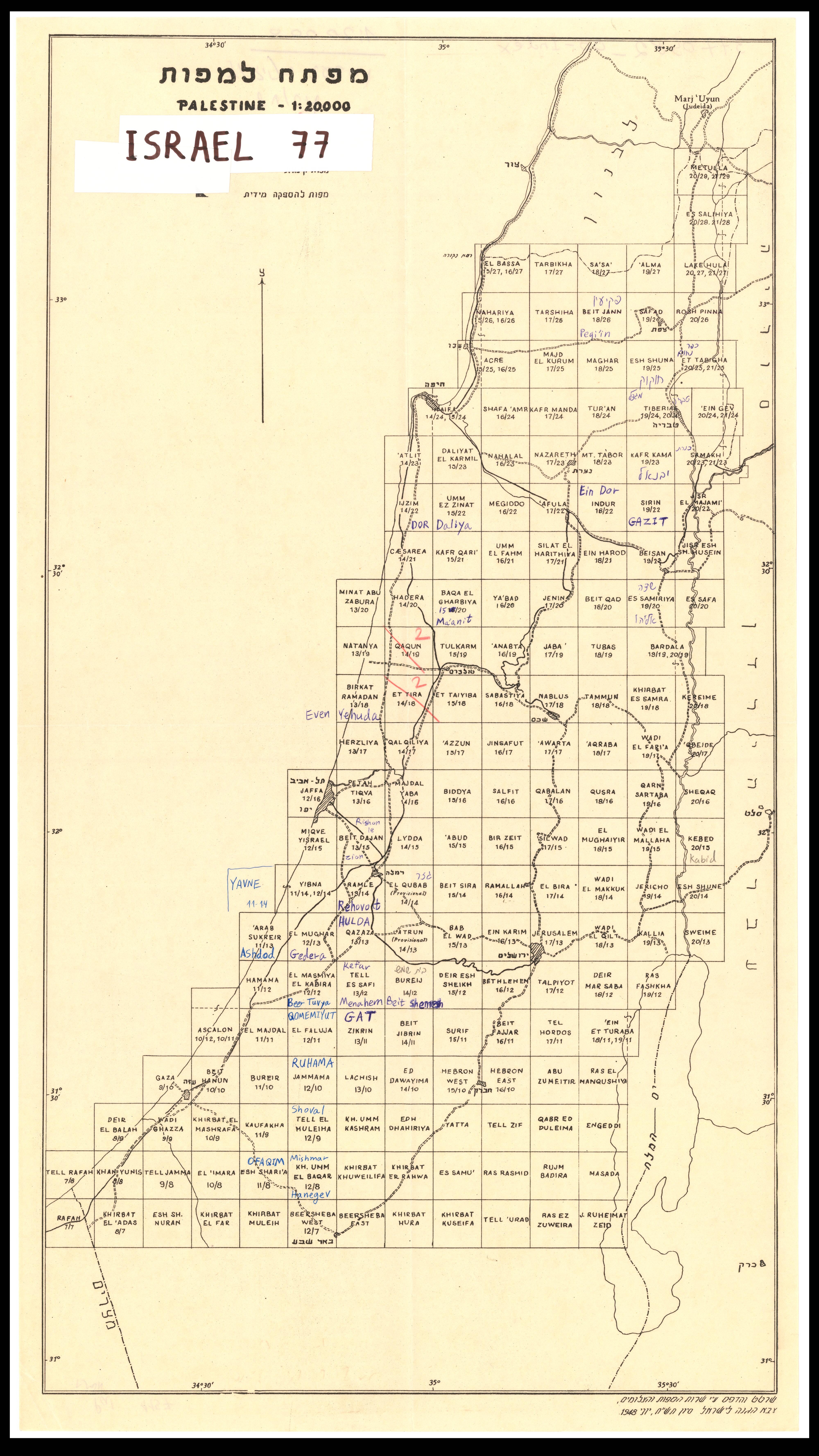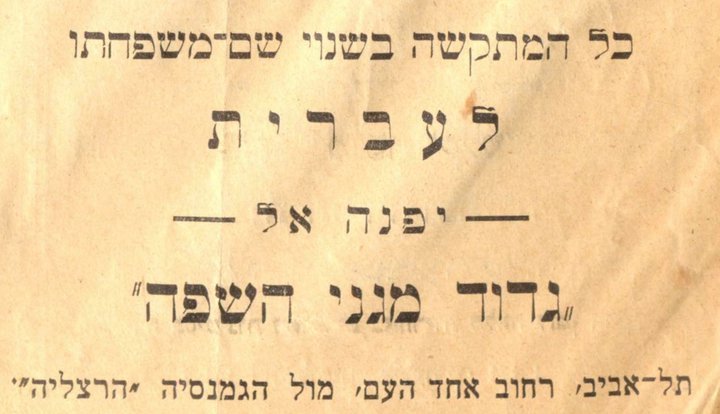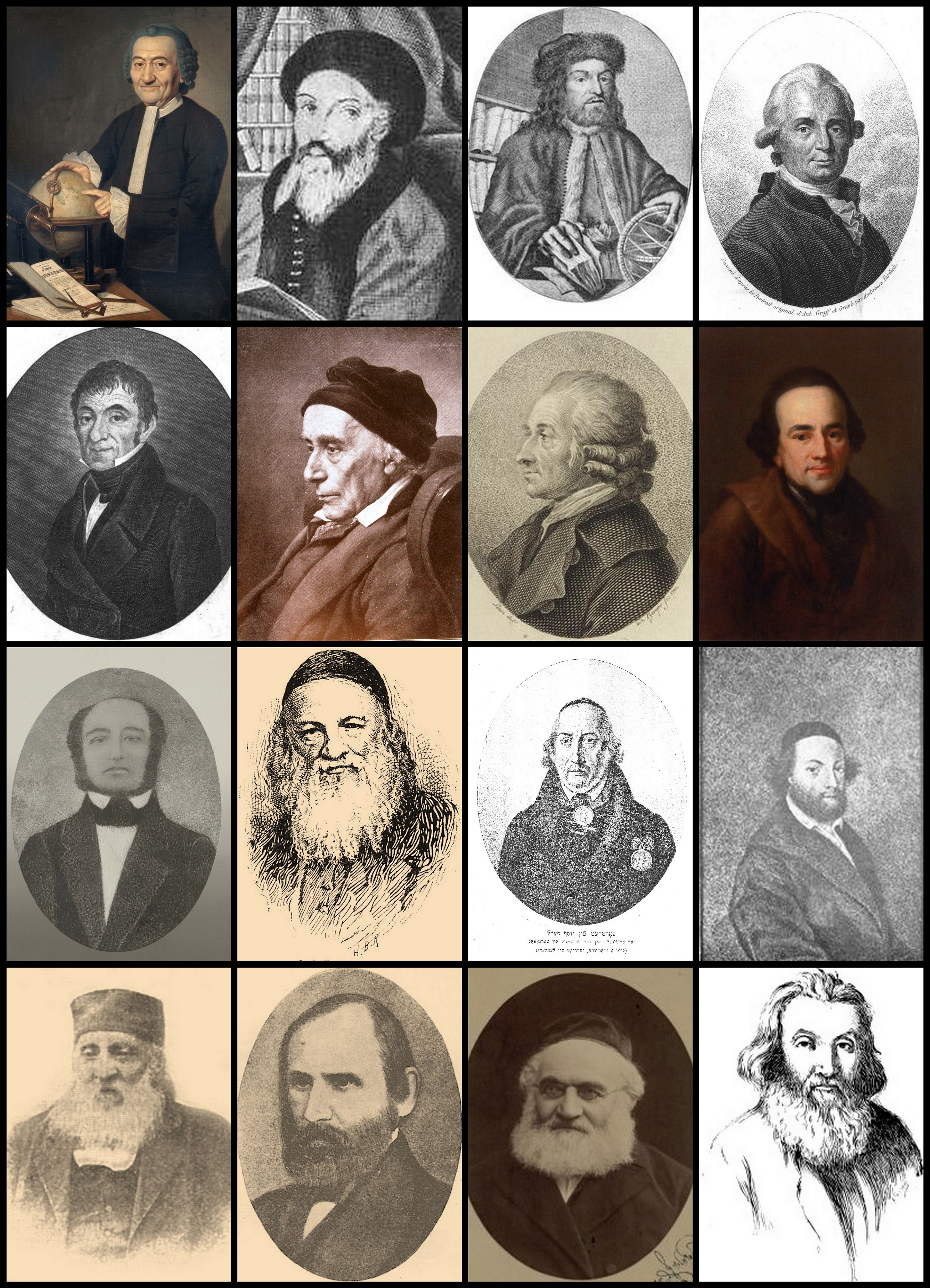|
Revival Of The Hebrew Language
The revival of the Hebrew language took place in Europe and Palestine toward the end of the 19th century and into the 20th century, through which the language's usage changed from the sacred language of Judaism to a spoken and written language used for daily life in Israel. The process began as Jews from diverse regions started arriving and establishing themselves alongside the pre-existing Jewish community in the region of Palestine in the first half of the twentieth century, when veteran Jews in Palestine (largely Arabic-speaking by that time) and the linguistically diverse newly arrived Jews all switched to use Hebrew as a lingua franca, the historical linguistic common denominator of all the Jewish groups. At the same time, a parallel development in Europe changed Hebrew from primarily a sacred liturgical language into a literary language, which played a key role in the development of nationalist educational programs. Modern Hebrew was one of three official languages of ... [...More Info...] [...Related Items...] OR: [Wikipedia] [Google] [Baidu] |
Mandatory Palestine
Mandatory Palestine ( ar, فلسطين الانتدابية '; he, פָּלֶשְׂתִּינָה (א״י) ', where "E.Y." indicates ''’Eretz Yiśrā’ēl'', the Land of Israel) was a geopolitical entity established between 1920 and 1948 in the region of Palestine under the terms of the League of Nations Mandate for Palestine. During the First World War (1914–1918), an Arab uprising against Ottoman rule and the British Empire's Egyptian Expeditionary Force under General Edmund Allenby drove the Ottoman Turks out of the Levant during the Sinai and Palestine Campaign. The United Kingdom had agreed in the McMahon–Hussein Correspondence that it would honour Arab independence if the Arabs revolted against the Ottoman Turks, but the two sides had different interpretations of this agreement, and in the end, the United Kingdom and France divided the area under the Sykes–Picot Agreementan act of betrayal in the eyes of the Arabs. Further complicating the issue was the ... [...More Info...] [...Related Items...] OR: [Wikipedia] [Google] [Baidu] |
David Ben-Gurion
David Ben-Gurion ( ; he, דָּוִד בֶּן-גּוּרִיּוֹן ; born David Grün; 16 October 1886 – 1 December 1973) was the primary national founder of the State of Israel and the first prime minister of Israel. Adopting the name of Ben-Gurion in 1909, he rose to become the preeminent leader of the Jewish community in British-ruled Mandatory Palestine from 1935 until the establishment of the State of Israel in 1948, which he led until 1963 with a short break in 1954–55. Ben-Gurion's passion for Zionism, which began early in life, led him to become a major Zionist leader and executive head of the World Zionist Organization in 1946. As head of the Jewish Agency from 1935, and later president of the Jewish Agency Executive, he was the ''de facto'' leader of the Jewish community in Palestine, and largely led its struggle for an independent Jewish state in Mandatory Palestine. On 14 May 1948, he formally proclaimed the establishment of the State of Israel, and wa ... [...More Info...] [...Related Items...] OR: [Wikipedia] [Google] [Baidu] |
Paul Johnson (writer)
Paul Bede Johnson (born 2 November 1928) is an English journalist, popular historian, speechwriter, and author. Although associated with the political left in his early career, he is now a conservative popular historian. Johnson was educated at the Jesuit independent school Stonyhurst College, and at Magdalen College, Oxford. He first came to prominence in the 1950s as a journalist writing for and later editing the ''New Statesman'' magazine. A prolific writer, Johnson has written over 40 books and contributed to numerous magazines and newspapers. His sons include the journalist Daniel Johnson, founder of '' Standpoint'' magazine, and the businessman Luke Johnson, former chairman of Channel 4. Early life and career Johnson was born in Manchester. His father, William Aloysius Johnson, was an artist and Principal of the Art School in Burslem, Stoke-on-Trent, Staffordshire. At Stonyhurst College, Johnson received an education grounded in the Jesuit method, which he preferred ... [...More Info...] [...Related Items...] OR: [Wikipedia] [Google] [Baidu] |
Zionism
Zionism ( he, צִיּוֹנוּת ''Tsiyyonut'' after '' Zion'') is a nationalist movement that espouses the establishment of, and support for a homeland for the Jewish people centered in the area roughly corresponding to what is known in Jewish tradition as the Land of Israel, which corresponds in other terms to the region of Palestine, Canaan, or the Holy Land, on the basis of a long Jewish connection and attachment to that land. Modern Zionism emerged in the late 19th century in Central and Eastern Europe as a national revival movement, both in reaction to newer waves of antisemitism and as a response to Haskalah, or Jewish Enlightenment. Soon after this, most leaders of the movement associated the main goal with creating the desired homeland in Palestine, then an area controlled by the Ottoman Empire. From 1897 to 1948, the primary goal of the Zionist Movement was to establish the basis for a Jewish homeland in Palestine, and thereafter to consolidate it. In a unique v ... [...More Info...] [...Related Items...] OR: [Wikipedia] [Google] [Baidu] |
Hebraization Of Palestinian Place Names
Hebrew-language names were coined for the place-names of Palestine throughout different periods: under the British Mandate; after the establishment of Israel following the 1948 Palestinian exodus and 1948 Arab–Israeli War; and subsequently in the Palestinian territories occupied by Israel in 1967. A 1992 study counted 2,780 historical locations whose names were Hebraized, including 340 villages and towns, 1,000 Khirbat (ruins), 560 wadis and rivers, 380 springs, 198 mountains and hills, 50 caves, 28 castles and palaces, and 14 pools and lakes. Palestinians consider the Hebraization of place-names in Palestine part of the Palestinian Nakba. Many place names in Palestine are Arabised forms of ancient Hebrew and Canaanite place-names used during antiquity; many of the original names can be found in the Hebrew Bible and the Talmud. Most of these names have been handed down for thousands of years though their meaning was understood by only a few. During classical an ... [...More Info...] [...Related Items...] OR: [Wikipedia] [Google] [Baidu] |
Aliyah
Aliyah (, ; he, עֲלִיָּה ''ʿălīyyā'', ) is the immigration of Jews from the diaspora to, historically, the geographical Land of Israel, which is in the modern era chiefly represented by the State of Israel. Traditionally described as "the act of going up" (towards the Jewish holy city of Jerusalem), moving to the Land of Israel or "making aliyah" is one of the most basic tenets of Zionism. The opposite action—emigration by Jews from the Land of Israel—is referred to in the Hebrew language as '' yerida'' (). The Law of Return that was passed by the Israeli parliament in 1950 gives all diaspora Jews, as well as their children and grandchildren, the right to relocate to Israel and acquire Israeli citizenship on the basis of connecting to their Jewish identity. For much of their history, most Jews have lived in the diaspora outside of the Land of Israel due to various historical conflicts that led to their persecution alongside multiple instances of exp ... [...More Info...] [...Related Items...] OR: [Wikipedia] [Google] [Baidu] |
Jewish Agency For Israel
The Jewish Agency for Israel ( he, הסוכנות היהודית לארץ ישראל, translit=HaSochnut HaYehudit L'Eretz Yisra'el) formerly known as The Jewish Agency for Palestine, is the largest Jewish non-profit organization in the world. It was established in 1929 as the operative branch of the World Zionist Organization (WZO). The stated mission of the Agency is to "ensure that every Jewish person feels an unbreakable bond to one another and to Israel no matter where they live in the world, so that they can continue to play their critical role in our ongoing Jewish story." It is best-known as the primary organization fostering the immigration of Jews in diaspora to the Land of Israel (known as ''aliyah'') and overseeing their integration with the State of Israel. Since 1948, the Jewish Agency has brought 3 million immigrants to Israel, and offers them transitional housing in "absorption centers" throughout the country. The Jewish Agency played a central role in the foun ... [...More Info...] [...Related Items...] OR: [Wikipedia] [Google] [Baidu] |
Hebraization Of Surnames
The Hebraization of surnames (also Hebraicization) ( he, עברות, ''Ivrut'', "Hebraization") is the act of adopting a Hebrew surname in exchange for a diaspora name. For many diaspora Jews who migrated to Israel, taking a Hebrew surname was a way to erase remnants of their diaspora experience and to assimilate into a new shared Jewish identity with Mizrahi Jews and Palestinian Jews (Jewish residents of Ottoman Syria and Mandatory Palestine) and later as Israeli Jews (Jewish citizens of the independent State of Israel). The name change typically did not apply to Mizrahi Jews, who came from neighboring countries like Iran, Iraq, and Egypt and usually kept their surnames. The phenomenon was especially common among Ashkenazi Jews, because many such families acquired permanent surnames (rather than patronyms) only when surnames were made compulsory by the November 12, 1787 decree by Habsburg Emperor Joseph II. Sephardi Jews from the Iberian peninsula often had hereditary famil ... [...More Info...] [...Related Items...] OR: [Wikipedia] [Google] [Baidu] |
Jewish Political Movements
Jewish political movements refer to the organized efforts of Jews to build their own political parties or otherwise represent their interest in politics outside the Jewish community. From the time of the siege of Jerusalem by the Romans to the foundation of Israel the Jewish people had no territory, and, until the 19th century they by-and-large were also denied equal rights in the countries in which they lived. Thus, until the 19th century effort for the emancipation of the Jews, almost all Jewish political struggles were internal, and dealt primarily with either religious issues or issues of a particular Jewish community. (See Judaism and politics.) Birth of Jewish political movements Since Jews were excluded as outsiders throughout Europe, they were mostly shut out of politics or any sort of participation in the wider political and social sphere of the nations in which they were involved until the Enlightenment, and its Jewish counterpart, Haskalah, made popular movements po ... [...More Info...] [...Related Items...] OR: [Wikipedia] [Google] [Baidu] |
Haskalah
The ''Haskalah'', often termed Jewish Enlightenment ( he, השכלה; literally, "wisdom", "erudition" or "education"), was an intellectual movement among the Jews of Central and Eastern Europe, with a certain influence on those in Western Europe and the Muslim world. It arose as a defined ideological worldview during the 1770s, and its last stage ended around 1881, with the rise of Jewish nationalism. The ''Haskalah'' pursued two complementary aims. It sought to preserve the Jews as a separate, unique collective, and it pursued a set of projects of cultural and moral renewal, including a revival of Hebrew for use in secular life, which resulted in an increase in Hebrew found in print. Concurrently, it strove for an optimal integration in surrounding societies. Practitioners promoted the study of exogenous culture, style, and vernacular, and the adoption of modern values. At the same time, economic production, and the taking up of new occupations was pursued. The ''Haskalah'' p ... [...More Info...] [...Related Items...] OR: [Wikipedia] [Google] [Baidu] |
Language Revitalization
Language revitalization, also referred to as language revival or reversing language shift, is an attempt to halt or reverse the decline of a language or to revive an extinct one. Those involved can include linguists, cultural or community groups, or governments. Some argue for a distinction between language revival (the resurrection of an extinct language with no existing native speakers) and language revitalization (the rescue of a "dying" language). There has only been one successful instance of a complete language revival, the Hebrew language, creating a new generation of native speakers without any pre-existing native speakers as a model. Languages targeted for language revitalization include those whose use and prominence is severely limited. Sometimes various tactics of language revitalization can even be used to try to revive extinct languages. Though the goals of language revitalization vary greatly from case to case, they typically involve attempting to expand the number ... [...More Info...] [...Related Items...] OR: [Wikipedia] [Google] [Baidu] |

_-_POALEI_ZION.jpg)




